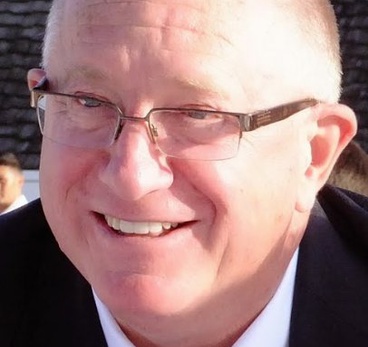
Dr H. Michael Shepard, PhD.
Biography
Biography
After completing a PhD in Cellular, Molecular and Developmental Biology at Indiana University (IU), Bloomington, and then a successful Walter Winchell-Damon Runyon postdoctoral fellowship, also in the Biology Department at IU, Shepard joined Genentech in 1980. For his first few years at Genentech, Shepard participated in the projects that resulted in cloning of human interferons, plasminogen activators, and tumor necrosis factors. Leaving his cloning years behind, Shepard initiated two successful programs at Genentech. One was managing an extramural research program, which brought academic know-how into the the Company, as well as providing reagents for research that benefited both the Company and the academic community. While this program created many fruitful collaborations, none was more successful than the work with Marc Feldmann, which led to Remicade (TNF Blocker), which is now used to treat multiple autoimmune diseases. The other program Shepard started was the first Cell Biology group at Genentech. This goal has driven the passion his career, i.e. cancer therapeutics that kill tumor cells and leave normal cells intact. This started with work aimed at the mechanisms of tumor cell resistance to the tumor necrosis factors, and resulted in the first biomarker-driven drug discovery effort in biotechnology, i.e. the discovery of Herceptin/trastuzumab, an antibody that is now used to treat breast cancer patients characterized by the overexpression of the HER2 proto-oncogene. Shepard later shared the Warren Alpert Prize from Harvard Medical School for this breakthrough. In order to continue his efforts to create breakthrough cancer therapeutics, Shepard left Genentech to help start the first successful gene therapy company, called Canji, Inc. This Company was the first to successfully traverse the gene therapy regulatory framework (including the Recombinant DNA Activities Committee), to initiate a clinical trial with adenovirus-p53, a disabled adenovirus encoding the p53 tumor suppressor gene, for drug-resistant ovarian cancer. Several patients benefited from this treatment, but Schering-Plough decided not to pursue. Later, an adenovirus encoding IFN-alpha was constructed, and is NOW in Phase 3 clinical trials for transitional cell bladder carcinoma. Shepard helped to engineer relationship with Schering-Plough, which later lead to its acquisition. Additional successful efforts included the founding of NewBiotics, Inc., where Shepard’s team invented a new class of therapeutics, called Enzyme-Catalyzed Therapeutic Agents. These are compounds that are activated by enzymes overexpressed in p53-inactivated tumor cells. Other programs included the first pan-HER antagonist, now being pursued by Symphogen. As VP/CSO at Halozyme Therapeutics, Shepard participated in multiple ENHANZE partnerships, and in recruiting collaborations with academic and pharma entities, including important immuno-oncology collaborations with major pharma companies. Shepard was also scientific program leader for Halozyme’s Phase 3 candidate for pancreatic cancer (Pegylated PH20 hyaluronidase). Shepard currently consults with several biopharmaceutical companies, primarily on cancer therapeutics discovery and early clinical development.